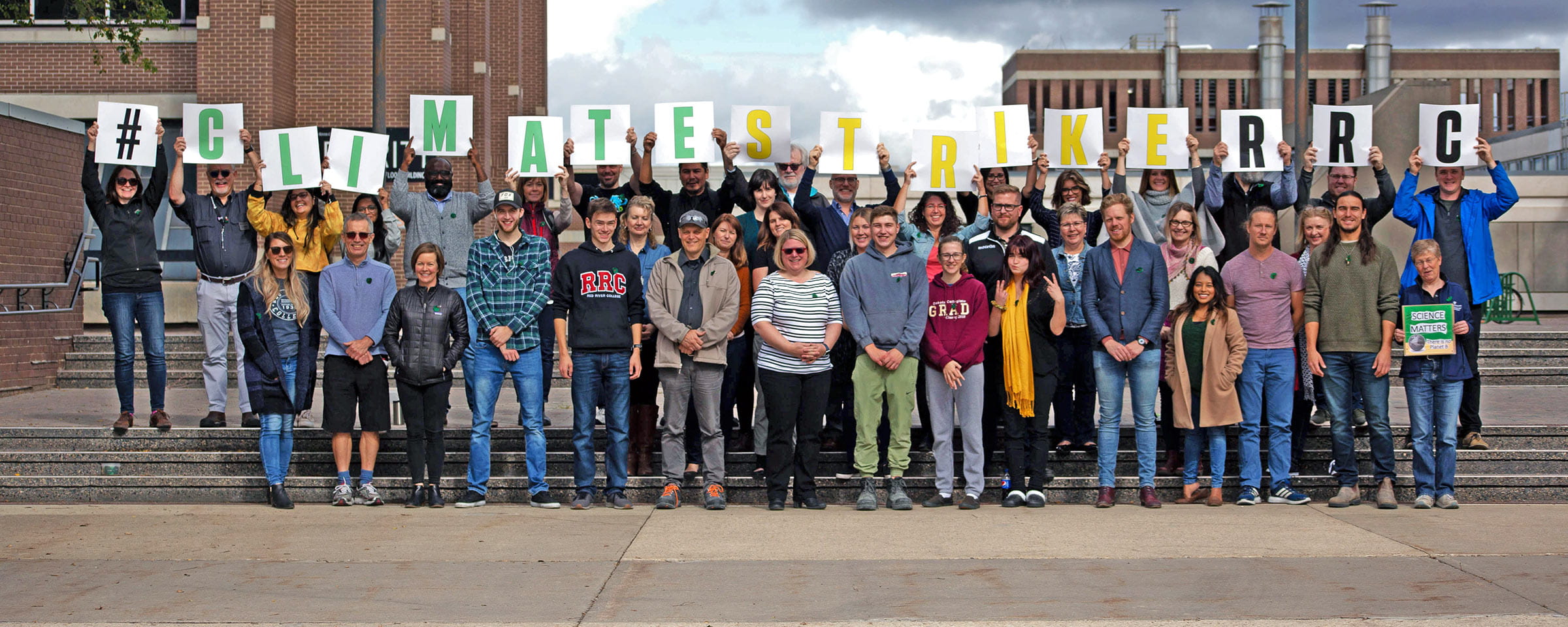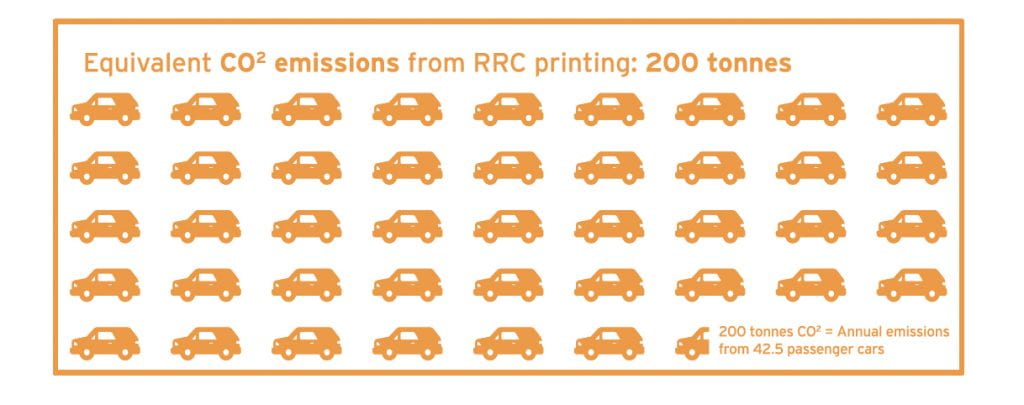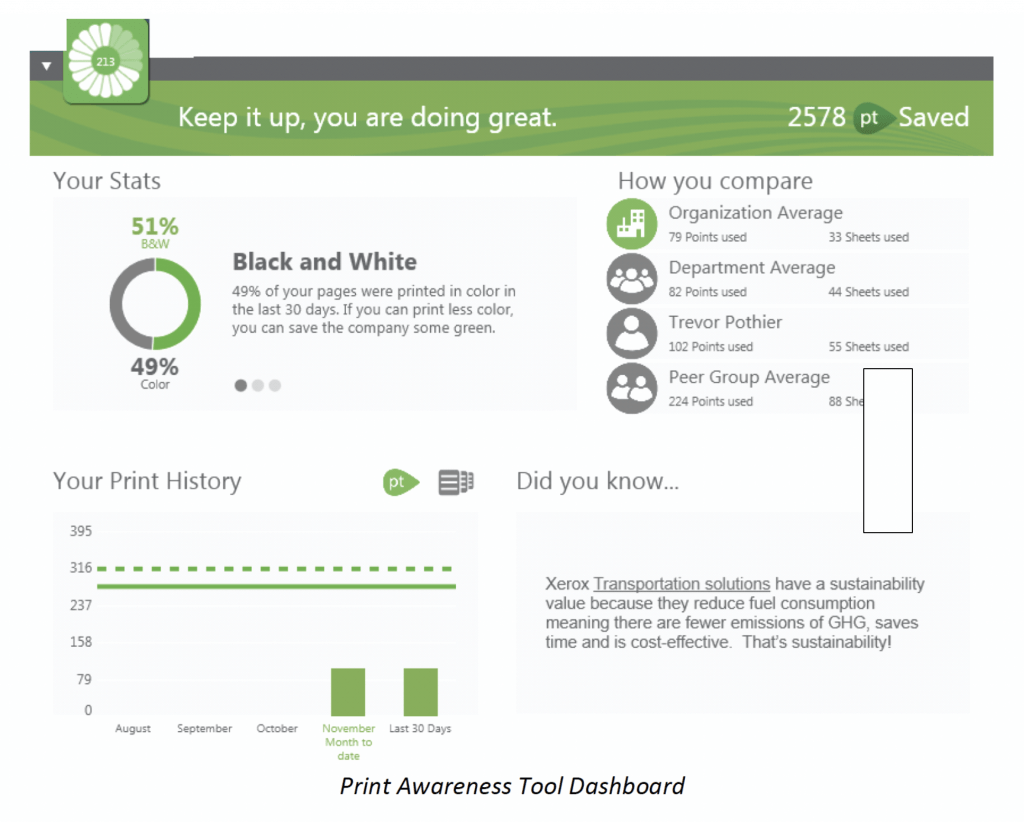


Paper is a resource that is consumed in huge quantities at the College. If you stacked up the 6,293,024 sheets of paper used by College staff and students for printing and photocopying in one year, the tower would be the fourth tallest structure in the world!
The College has an unprecedented ability to track and report on the campus print environment via PaperCut, obtained through our Xerox contract. For students, the PaperCut widget tracks their print balance so they know when to load more money to their printing account. For staff and faculty, it tracks the cumulative costs of their printing and photocopying.
Did you know that PaperCut does more than track printing costs? PaperCut keeps track of a variety of printing data including how many pages you printed in colour, how many sheets of paper you have used, and even the environmental impacts of your printing. To get these details about your own printing you can log on to PaperCut (staff, students).


In 2016, the Print Optimization Working Group (POWG) was formed to create and implement goals to reduce paper consumption and optimize the print environment on campus. The group meets on a regular basis and is made up of representatives from ITS, Ancillary Services and Sustainability. Together they developed expectations to screen and select the new print provider, so that all new printing devices purchased by RRC Polytech took environmental considerations into account. Once the printing provider contract was awarded to Xerox, their representatives joined the POWG.
In 2017, the Resource Reduction Specialist position was created. The Resource Reduction Specialist works closely with the Print Optimization Working Group, providing leadership and helping to carry out initiatives to reduce paper consumption on campus.
Paper Reduction initiatives at RRC Polytech take many forms, from technology adoption, to print awareness tools:
This feature, launched on Xerox devices May 2018, requires staff to log in at the printer in order to release a print job. This process was put in place for two reasons:
Security: It ensures that your printed documents are seen by your eyes only. No more ‘print and sprint’ down the hall to prevent others from accidentally seeing confidential info.
Paper reduction: An estimated 10% – 15% of all printed paper is never collected. For the College, this could translate to more than 1,000,000 printed pages and nearly $80,000 in printing costs annually. Having the simple, extra step of releasing your print job at the device allows unneeded print jobs to be canceled.
Annual Impact from Unreleased and Canceled Print Jobs Since the Implementation of Print Release:
| Sheets of Paper Saved | Value Saved | CO2 Emissions Avoided (kg) | |
|---|---|---|---|
| Year 1 (June 2018-May 2019) | 188,103 | $19,168.83 | 5,981.68 |

Set to launch in 2019, this innovative Xerox tool will be a fun way for staff to keep track of their printing and challenge themselves to use less. Staff will have the option to download this tool to their computers. The tool guides staff through a self-assessment to see how in tune they are with their personal print habits. Based on their printing history, it gives them a base number of monthly points which go down with every print job. Campaigns with prizes will be run throughout the year to encourage staff to keep their points up.
Departments that want to get a better sense of their own print habits and impacts can connect with the Resource Reduction Specialist, Whitney Crooks. She can provide departments with a report on their printing, an analysis of areas for improvements and support to carry out these actions.
Guidelines – So, you’re being asked to reduce your printing, but where do you start? We are currently developing guidelines including Organizational Print Guidelines and Green Meeting Guidelines designed to support you in reducing printing and print costs.
Engagement – We try to stay visible and relevant with campaigns, initiatives and communications. Stay tuned to our Red Goes Green blog, as well as our social media to find out what’s happening!
RRC Polytech campuses are located on the lands of the Anishinaabeg, Ininiwak, Anishininwak, Dakota Oyate, and Denésuline, and the National Homeland of the Red River Métis.
We recognize and honour Treaty 3 Territory Shoal Lake 40 First Nation, the source of Winnipeg’s clean drinking water. In addition, we acknowledge Treaty Territories which provide us with access to electricity we use in both our personal and professional lives.